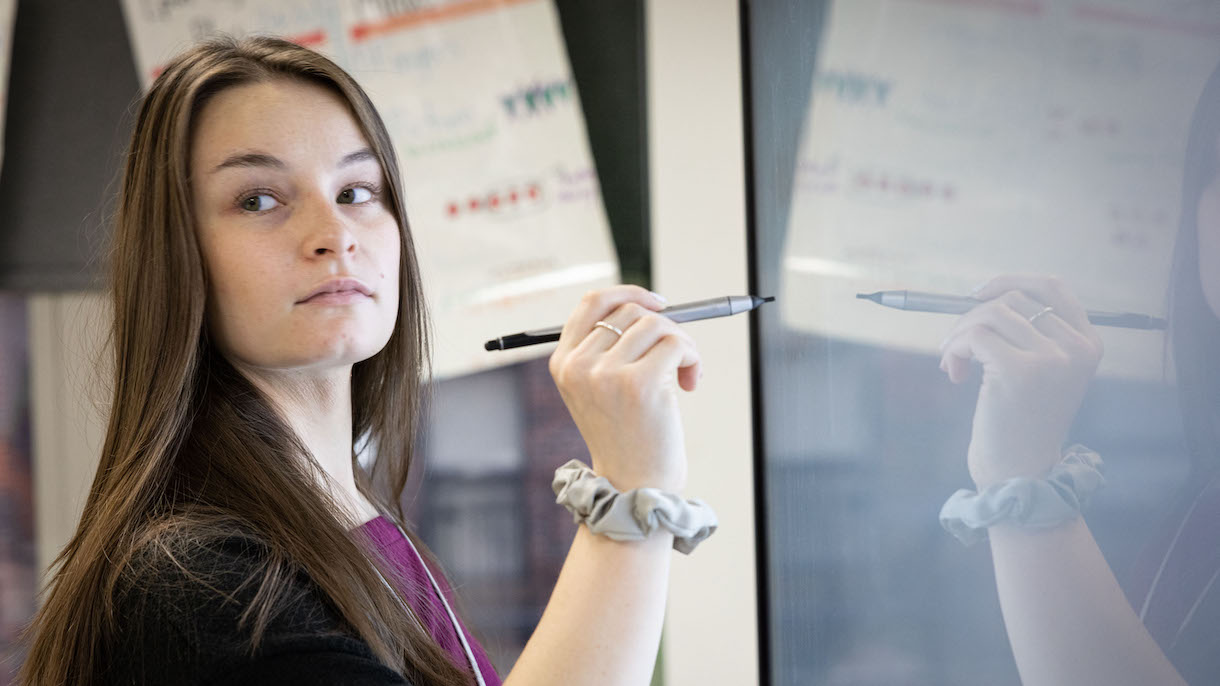
Master of arts in teaching curriculum
Connect learning theory with expert guidance in classroom practice
In the NYU Teacher Residency, each curriculum module connects learning theory with practice and builds on what you’re doing in the classroom.
Upon completion of the Inclusive Childhood Education (elementary school) degree program, you:
- earn your master of arts in teaching in Inclusive Childhood Education: a dual certification in childhood education Grades 1-6 and teaching students with disabilities, Pre-K-Grade 12 (all grades).
- become eligible for recommendation for initial certification in New York State in childhood education Grades 1-6 and childhood special education for Pre-K-Grade 12.
Upon completion of the Secondary Education (middle and high school) degree program, you:
- earn your master of arts in teaching in Secondary Education.
- become eligible for recommendation for initial certification in New York State in a secondary teaching content area in English, mathematics, science, or social studies for Grades 7-12 (with a Grades 5-6 extension), or in secondary special education for Grades 7-12.
Master’s in teaching online classes
You meet online with NYU Steinhardt faculty and fellow teacher residents on a schedule designed to help you increase responsibilities in the classroom. You take synchronous classes during a set time twice each week in the evening.
The curriculum and instruction focus on preparing reflective teachers who are knowledgeable about and skilled in content, pedagogy, working with families and diverse communities, and meeting the academic and social needs of all students. You learn face-to-face using video technology and form a collaborative community with your cohort. Online learning in the Teacher Residency maximizes interpersonal relationships and relevant instruction.
By completion of the NYU Teacher Residency, you learn to:
- become educators of all students.
- be a culturally responsive teacher who builds community with students and families to foster engagement and well-being.
- integrate theory and research with practice.
- develop and implement discipline-based curricula, unit plans, and lessons that are coherent, inclusive, and accessible to all.
- create and apply classroom strategies that are innovative, clear, and appropriate for specific contexts through technology that supports student learning.
- develop a practice that is equitable and acquire the skills of a professional educator.
*Note: The course work and fieldwork lead to eligibility for initial teaching certification in New York State. Please visit our Professional Licensure page for more information.